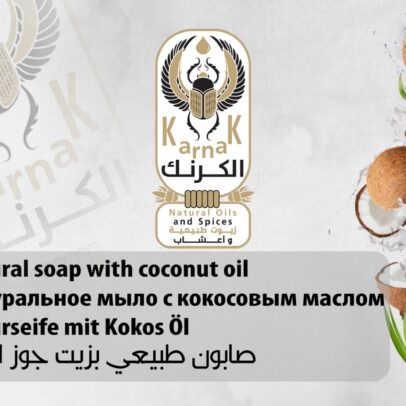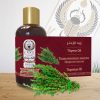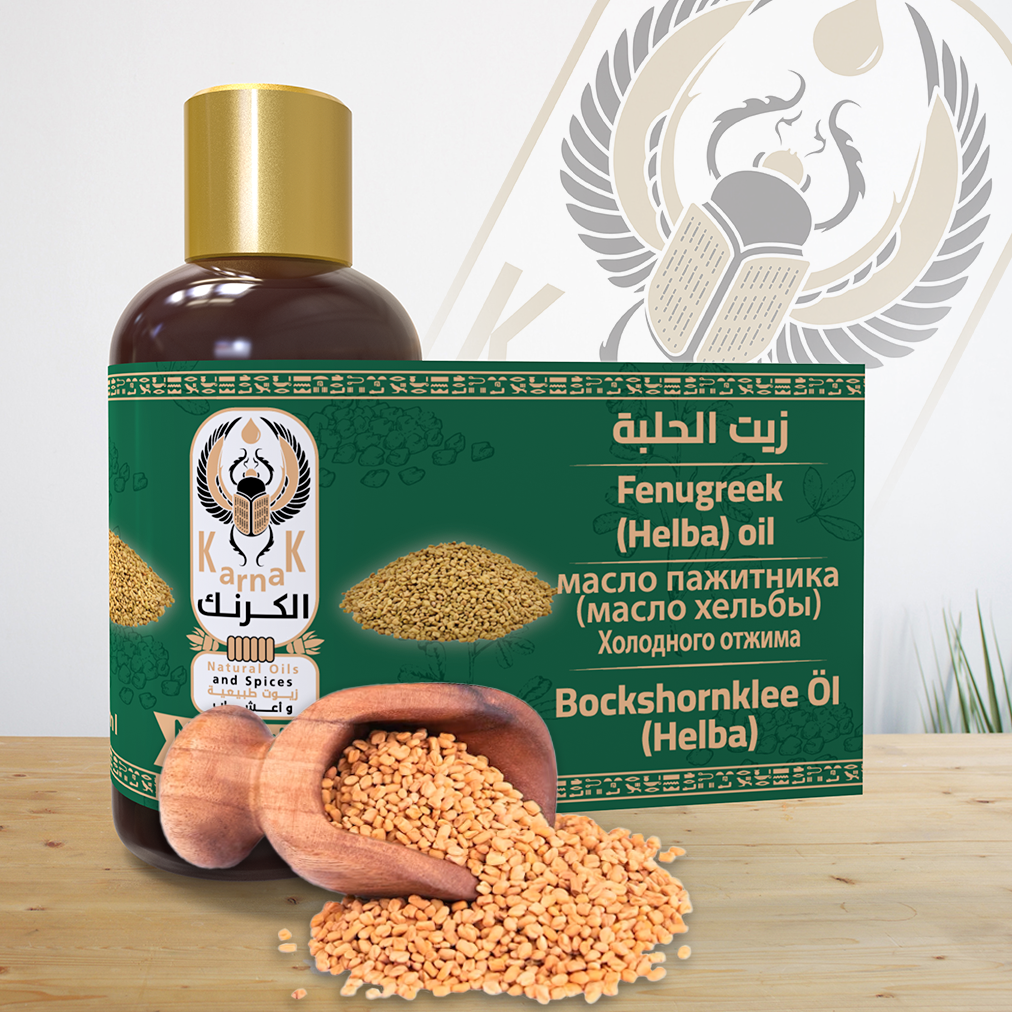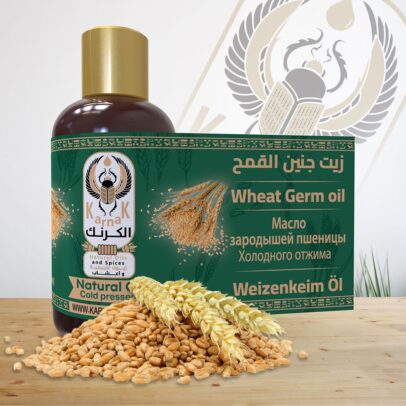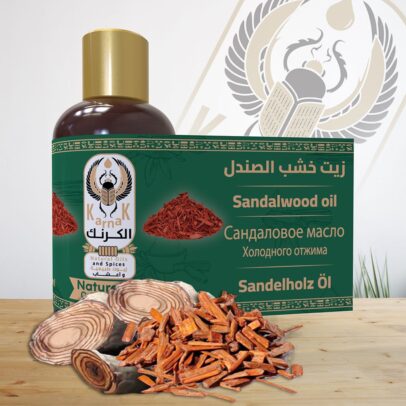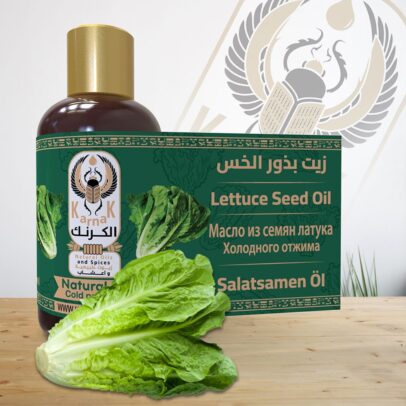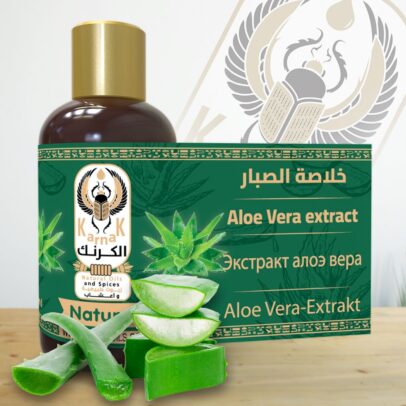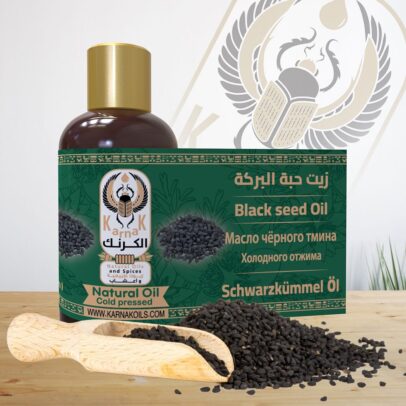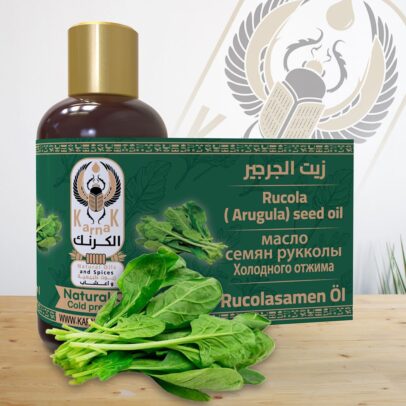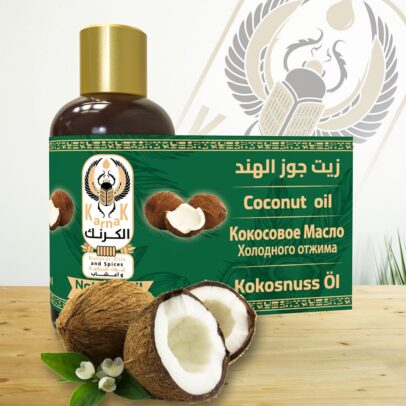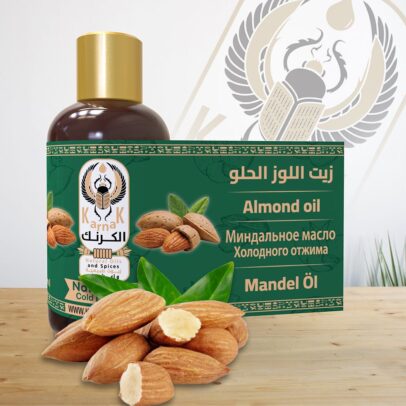Get 25% discount on your first order!
17.00 $ – 45.00 $
Fenugreek Oil
size
Choose an option
Add to cart
Buy Now
Fenugreek (Trigonella foenum-graecum) is a clover-like fragrant herb that belongs to the pea family (Fabaceae). The plant is native to southern Europe and the Mediterranean region and is cultivated in Central and Southeastern Europe, western parts of Asia, Inia, and Northern Africa (Egypt).
Dried leaves and aromatic seeds of the fenugreek plant are used in various cuisines and herbal medicines. Fenugreek seeds have a distinct aroma and a bitter taste resembling maple syrup or reminiscent of burnt sugar. The seeds and dried leaves are used as a spice or mixed with flour to prepare bread. Fenugreek seeds may be cooked or eaten raw after soaking them in water.
Fenugreek oil is also used in various cosmetics and soaps. They have been in use in several herbal medicinal preparations either as the principal drug constituent or to mask the aroma or taste of the constituent herbal drugs.
Fenugreek seems to slow sugar absorption in the stomach and stimulate insulin. Both of these effects lower blood sugar in people with diabetes. Fenugreek might also improve levels of testosterone and estrogen, helping to improve interest in sex.
People commonly use fenugreek for diabetes, menstrual cramps, sexual problems, enlarged prostate, high cholesterol, obesity, and many other conditions.
Active constituents:
The ingredients found in fenugreek seed are galactomannan, sapogenin, trigonelline, and 4-hydroxyisoleucine that have the anti-diabetic properties as well as shows role in the treatment of breast cancer. Fenugreek holds 23–26% protein, 6–7% fat as well as 58% carbohydrates of which around 25% is dietary fibre. and seeds are a rich source of fiber mainly non-starch polysaccharides. 8 Moreover, seed of fenugreek are rich in proteins such as globulin, lecithin and albumin, and also contain iron, comprising 33 mg/100 g dry weigh and unsaturated fatty acids, 12 flavonoids, and polyphenolic substances, and vitamins and calcium.
Steroidal Saponins: protodioscin, graecunin, fenugreekine, diosgenin, fenugrine B, trigofoenosides A-G.
Proteins: such as albumin, globulin, histidine and lecithin proteins of fenugreek have good potential for insulin stimulating properties.
Vitamins: Fenugreek oil highly rich in vitamins A, B1, B2, C, niacin, nicotinic acid, biotin and folic acid.
Minerals: Fenugreek has good concentration of phosphorus, iron, sulphur, calcium and zinc.
Alkaloids: Fenugreek contains trigonelline alkaloid which is very useful for activation of estrogen receptor due to this ability it is also called as phytoestrogen.
Flavonoids: The main flavonoids which are present in fenugreek are glycoside, orientin, isoorientin, vitexin, epigenin and quercetin. Flavonoids are present in the complex form with by conjugating with carbohydrates.
Flavonoids of fenugreek has (anti-tumorigenic) property which induce apoptosis (death of cells) in the human lung tumor cell lines, stomach cancer cells, prostate cancer cells, breast cancer cells, head and neck squamous carcinoma 3 and cervical cancer cells these cells having effects on macrophages.
Diosgenin is very useful in cancer therapy.
Volatile compounds: The main compounds are n- hexanol, dihydroactiniolide, dihydrobenzofuran and heptatonic acid oils are easily dissolved in benzene, ether and petroleum ether. Fenugreek oils having good antimicrobial activity.
Uses:
1- Reducing Hair Loss and Nourishing the Scalp
Trigonelline boosts growth in the epidermal cells in the scalp and encourages hair growth. This reduces hair thinning and hair loss. Additionally, trigonelline was found to increase the dilation of the blood vessels in the scalp, delivering oxygen to the hair follicles and stimulating hair growth.
In addition to these effects, fenugreek oil may also help reduce graying hair. The oil contains vitamins A and C, which help in reducing sun damage caused to the melanocytes in hair follicles. These vitamins have antioxidant properties and may not only prevent hair graying but also reverse it.
To use fenugreek oil for your hair, mix in a few drops of Jojoba oil and massage it on your scalp. Leave the treatment in your hair for around 30 minutes. Make sure to patch test before use, and wash your scalp and hair thoroughly after.
2- Fenugreek Oil for Radiant and Healthy Skin
Fenugreek oil contains the steroidal saponin diosgenin, which has anti-inflammatory and antioxidant properties. It may help to alleviate symptoms of skin conditions, such as seborrheic dermatitis, eczema, and psoriasis.
Furthermore, the oil is rich in vitamins A and C, which are powerful antioxidants and anti-aging compounds. These vitamins effectively combat oxidative stress to the epidermal cells, reducing the appearance of wrinkles and fine lines. Vitamin C also supports collagen production, further enhancing the anti-aging effect and making the skin appear brighter and firm.
To apply fenugreek oil to the skin, mix the oil in your moisturizer or facial cream, and apply as usual.
3- Fenugreek Oil for Sexual Wellness
Sexual wellness is impacted by several external and internal factors, such as sleep, hormones, stress, and fatigue. Researchers focusing on this area have recently taken a significant interest in the potential of fenugreek seed extract in promoting sexual desire and libido in both men and women.
When utilizing fenugreek oil for sexual wellness, it is important to select the oil from a reliable source. The efficacy of the oil may be compromised if it is impure or has been extracted from poor-quality plants. The presence of an active compound called protodioscin plays a key role in influencing testosterone levels, and it must be present in appropriate concentrations for the oil to be effective.
4- Fenugreek Oil to Lower Blood Cholesterol Levels
Fenugreek possesses medicinal qualities that make it potentially highly effective in reducing bad cholesterol levels in the blood. Several scientific studies have confirmed the hypolipidemic action of fenugreek seed extracts.
A clinical study conducted in 1991 showed that regular intake of fenugreek lowered both LDL and VLDL. The cholesterol levels in 80 percent of the subjects were reduced by 25%. The study also revealed that withdrawal from fenugreek did not immediately reverse prior blood cholesterol levels. Another study conducted recently in 2020 confirms this hypothesis, providing evidence for the use of fenugreek as a cholesterol-lowering medicinal plant.
5- Fenugreek Oil for Managing Diabetes
Diabetes is a lifelong condition that impacts the quality of life. Many people try to manage diabetes by making lifestyle changes, such as eating healthy, exercising, and taking medication. Essential oils and carrier oils with medicinal properties may help improve how the body turns food into energy, and help manage diabetes.
Researchers have found that fenugreek mimics the mechanism of insulin in the body and slows down the absorption of glucose. Fenugreek seeds contain 4-hydroxy isoleucine, a compound that is known to boost insulin secretion and improve glucose tolerance in people with type 1 and type 2 diabetes.
6- Fenugreek oil as Breast Milk Supply
Fenugreek is a popular herbal remedy for increasing the production of breast milk. It’s thought to boost the supply of breast milk due to its effect on sweat production. Mammary glands are sweat glands that have been modified by hormonal stimulation.
Despite its popularity, however, only a few studies have investigated fenugreek for lactating people. In one 14-day study, researchers reported that new mothers taking fenugreek tea increased breast milk production, which helped babies gain more weight.At 2018 research analysis study concluded that consumption of fenugreek significantly increased the amount of breast milk produced.
7- Relieves menstrual cramps
Fenugreek has been shown to relieve dysmenorrhea, or painful menstrual periods. According to some studies, women who took fenugreek supplements reported a reduced need for painkillers for menstrual cramps. Fenugreek seed powder can be taken 3 times a day in a dose of 1,800-2,700 mg for the first 3 days of a menstrual period, then followed by 900 mg fenugreek seed powder 3 times a day for the next 2 days of the menstrual cycle.



